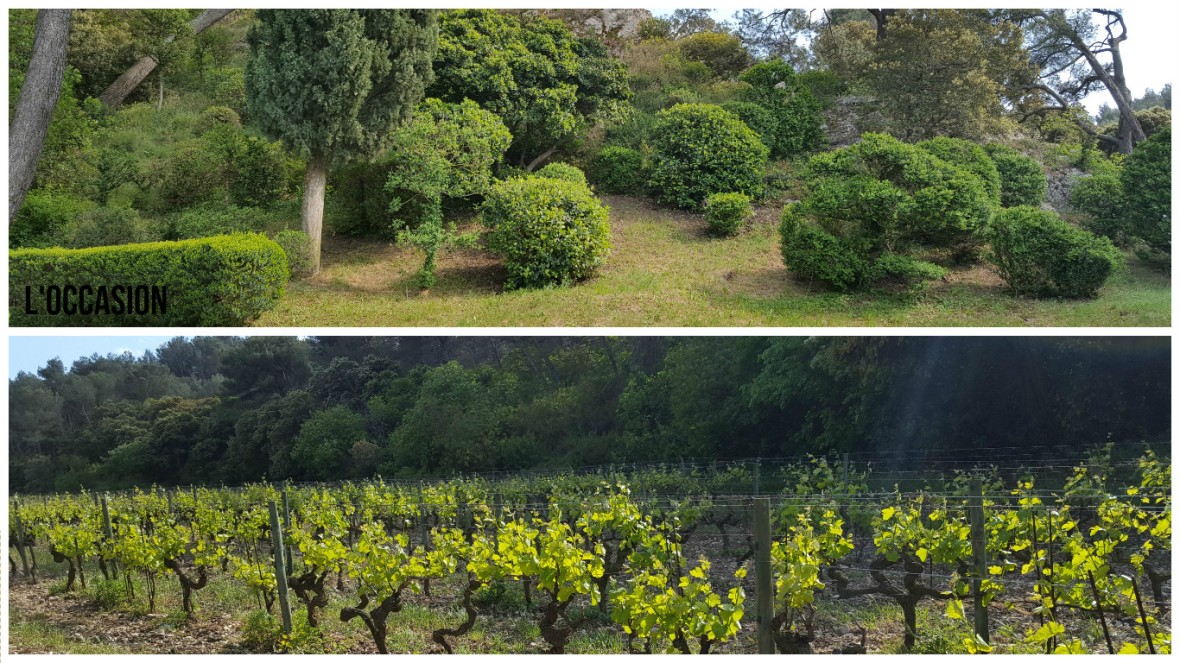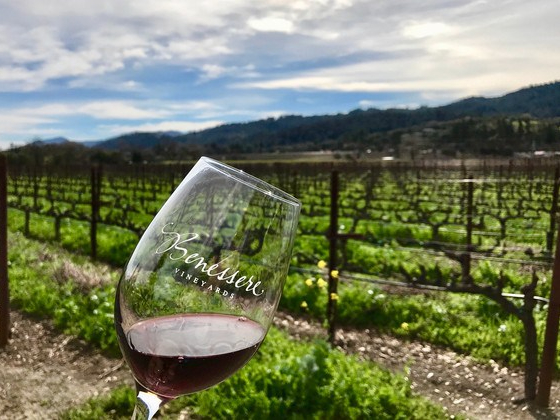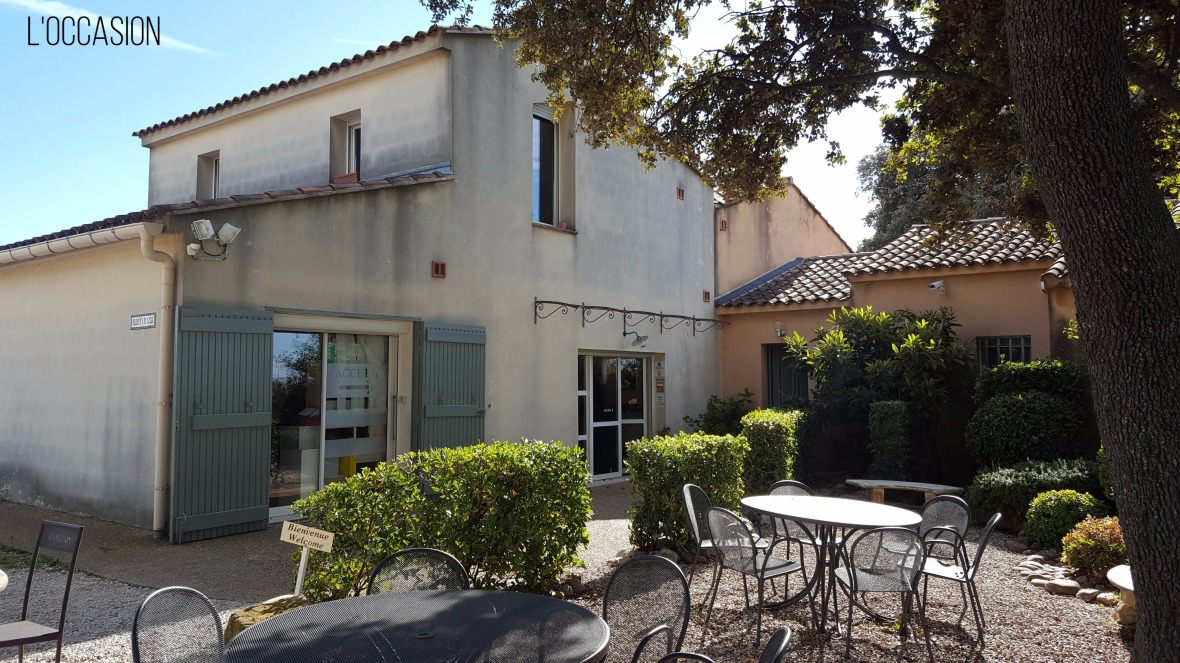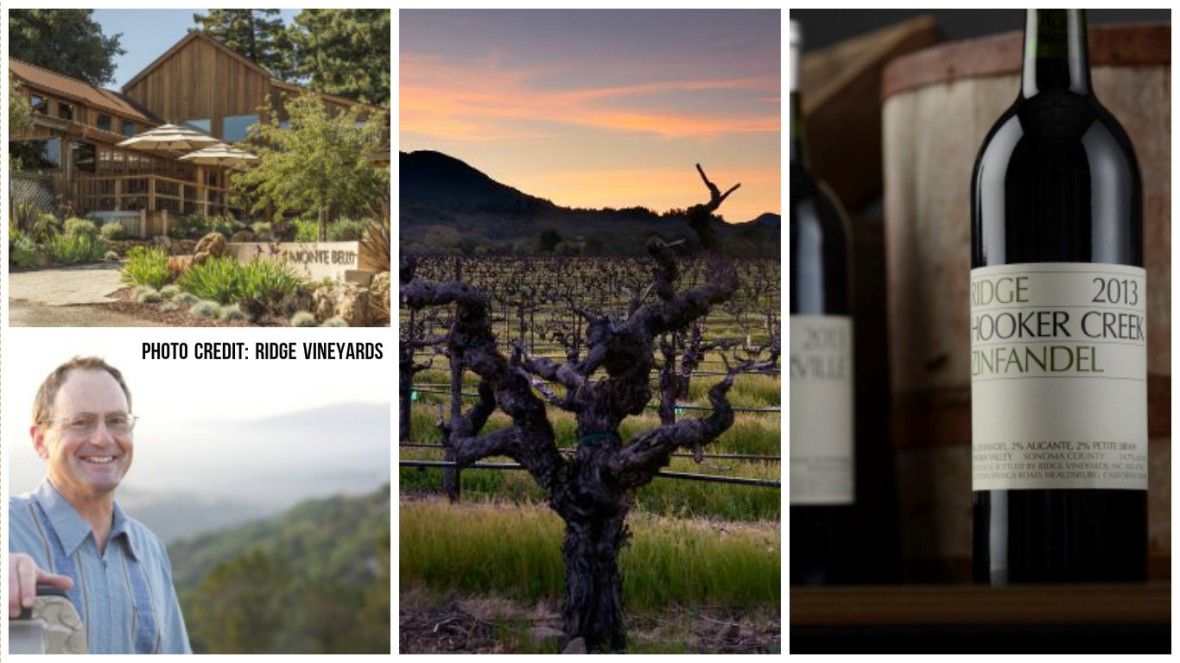April 22 is Earth Day. Ask any winegrower the number one ‘ingredient’ in their wine and they’ll answer: terroir. The land. The Earth.
This post is a roundup of some of the recent sustainable and biodynamic (biodynamique in French) wines that I’ve highlighted on L’occasion and elsewhere. (And one recommendation for the beer lovers.)
These Organic Wines From Provence Are Ideal For Earth Day on Forbes:

April 22 is Earth Day, an event recognized as the largest non-secular observance in the world with more than one billion participants. An ancient Provençal wine region’s sustainable traditions are a reminder of Earth’s abundance.
Why Wine Country Looks So Beautiful: Napa Ag Preserve Turns 50 on Forbes:

The vines in February at Benessere Vineyards in St. Helena, Napa County. Courtesy: Benessere Vineyards
The Napa Agriculture (Ag) Preserve turns 50 years old in 2018 thanks to the farmers, vintners and residents who saw the value of an agrarian future for their valley.
Lessons from a Biodynamic Winemaker in France:

Biodynamic winemaker in Sarrians, France – MonTirIus. Credit: Jill Barth
The SAUREL family of MonTiRius runs a completely biodynamic shop. “Our farm evolved progressively towards farming which respects more and more the environment, the vines, the land and the quality of our wines,” says the family.
The Biodynamic Vineyards of Savoie:

When I read the story of Jacques Maillet, Savoie vigneron, it echoed the message I’d heard from other biodynamic winemakers. The chemicals, they say, just aren’t safe. They are toxic to our plants, to our soil, to our wildlife and to us.
Dessert Wines from Southern France:

Made from Muscat a petits grains noir and blanc, Muscat de Beaumes de Venise is made primarily as a white wine, though limited amounts of rosé and red are made each year. Credit: Jill Barth
I remember the first time I sipped a Muscat de Beaumes de Venise, a vin doux naturel (VDN, naturally sweet wine) from France’s Southern Rhône Valley. It was with Patrick Soard and his daughter Justine, of Domaine de Fenouillet, on their property – neighbors with Mont Ventoux and the Dentelles de Montmirail. The domaine is certified organic, practicing biodynamics (not yet certified), under the guidance of Soard and his brother, Vincent Soard.
Profile of Domaine des Terres Blanches in Provence WineZine:

Domaine des Terres Blanches was founded about 20 years ago by Noël Michelin who, along with Eloi Dürrbach, founder and winemaker of Domaine de Trévallon, launched the movement to elevate Les Baux de Provence to appellation status in 1995. The domaine subscribes to a “Bio-Active” philosophy, which basically means that the grapes are organically cultivated in close harmony with the cycles of nature as well as the estate’s production needs. Red wine may dominate production, as is the case in all wineries in this appellation, but one white and one rosé are also produced at Domaine des Terres Blanches. About 32 hectares (80 acres) are in production on this property.
Light and Fresh with Muscadet:

The sights of Pays Nantais & my bottle of Muscadet from Château de la Fessardière. Wine bottle is my photo, all other credits to ©InterLoire
I have the 2012 vintage of a bottle that bears an Eco Cert as well as an Agriculture France Vin Biologique label. The Sauvion family has a long history of making wines in the Loire Valley, and Alexis usesbiologique methods to make this wine, a lovely example of the herbal, citrus, distinct flavor of Muscadet wines. According to Sauvion’s blog (my translation from French):
Organic winemaking is essential to retain the grape’s own yeasts that will allow it to ferment naturally sugar into alcohol with the aromas of the vintage. Working the land is essential for the vines to live and its roots go down deep look for the subtleties of terroir is a culture that respects the earth that feeds, to feed the plant. Our organic Muscadet reflects this philosophy, it is a rich, mineral wine which feeds all the qualities of the soil.
New Wines from Wineries You Know:

Randall in Grenache vines, Back label of A Proper Pink, Randal, Front label of A Proper Pink
He’s been awarded every accolade by everybody and here’s the thing, when I emailed him for details about his new pink wine, he got right back to me with a chat. I get the impression that he’s not unlike the car-lovers: ready to stay-up-all-night talking wine and that he, fist-to-the-table, wants to get it right. There’s something else too, he’s become diligent about his wine labels. Not only are they gorgeous, but they’ve been known to issue each ingredient used to make his wine; in other words, it’s what’s under the hood that counts. While the Dooniverse is careful to run a biodynamic shop with soil health at tip-top priority, they don’t make consumer-back-pat promises (none of this slap-a-sticker-on-it, all-natural blather). Randall’s operating manual includes “enriching our lives and inspiring us with the breath-taking order of Nature herself.”

Clockwise: Monte Bello tasting room, Hooker Creek vineyards, Hooker Creek 2013, David Gates
The team at Ridge also employs a transparent labeling system, allowing customers to peek-under-the-hood at what goes into their wines. Ridge too, is known for sustainable vineyard practices; according to the website, “Farming them sustainably, we attempt to carry the soil, the microclimate – everything affecting the site – into the wine, and to gain a true sense of place…
Welcome Spring with Fresh Food and La Ferme du Mont Côtes du Rhône:

Maybe it is a matter of taste, or perhaps it’s because I have a significant affinity with the wines of Provence and Southern Rhône, but I’ve had enjoyed a bounty of wines that are produced by “bio” winemakers. (I’ve covered this concept in other articles, but in short: winemakers that don’t rely on science/additives/chemicals to make great wine; they rely on old-ways, nature, balance, know-how and synchronicity with nature.) La Ferme du Mont has a dedication to biodynamique winemaking; the integrity shows in the quality of the wine and sincere expression of terrior. This was not a wine that felt “fiddled-with”.
Winemakers of Les Baux de Provence Celebrate 20 Year Anniversary:

Credit: CIVP Vins de Provence
Les Baux-de-Provence is located within the Bouches du Rhône department of Provence. Although the appellation is small and relatively new, the twelve winemaking estates have earned well-deserved praise for their predominantly organic and biodynamic practices. Not yet a legislative mandate, the men and women who make wine here employ earth-friendly practices as a matter of tradition and principle. As much as 85% of the area is devoted to an organic or biodynamic approach.
And one last thing for the beer lovers: Sustainable Guinness

Touring the Guinness Storehouse at St. James Gate Brewery is a thrill for those that love to drink the dark stuff. When I was at the welcome room at the top of the storehouse a few years ago, enjoying the purest gulp of Guinness I’ve ever tasted, we saw a glorious rainbow over the Dublin sky. Memorable and meaningful: proven marks of world class travel. An honored spot, coupled with a superior commitment to sustainability, makes a trip to the Guinness Storehouse a bucket-list must.
Over 10 million glasses of Guinness are enjoyed everyday, according to The Guinness Story. Here’s the story of how these pints are made sustainably:
Ireland’s Guinness Storehouse, one of the country’s top tourism destinations, has made some significant investments in sustainability. This short video tells the story of their eco-certification through Sustainable Travel International’s Sustainable Tourism Education Program (STEP).

I’ll have to check out the Terres Blanches when I get back – thanks for the tip!
LikeLiked by 1 person
Oh definitely. It’s great, really special place. I have other recommendations in the Alpilles when you go.
Thanks for reading & commenting!
LikeLiked by 1 person